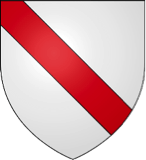City of the Reformation – Strasbourg
France
Strasbourg

The Reformation quickly gained a foothold in Strasbourg. The Protestant preaching of Reformers such as Wolfgang Capito, Caspar Hedio and Matthäus Zell found favour among broad circles of the city’s inhabitants. When the City Council forbade Matthäus Zell from preaching from the cathedral pulpit in 1522, the city’s carpenters constructed a portable pulpit to enable him to continue preaching God’s Word in public. The appearance of Reformer Martin Bucer cemented the grip of the Reformation in Strasbourg, and city’s importance and prestige spread throughout Europe. Along with three other cities, in 1530 Strasbourg presented its own Protestant confession – the Confessio tetrapolitana – to the Imperial Diet in Augsburg. It expressed the fundamental alignment of the Upper German Reformation as a mediator between Wittenberg and Zurich.
The city became home to increasing numbers of Protestant religious fugitives from France, who acquired Johannes Calvin as their own pastor in Strasbourg in 1538. The High School, which was also founded in that year and became the academic seat of Strasbourg Reformationists, attracted students from far and wide who came to hear their prestigious teachings. The High School and the city’s many print works helped to disseminate Reformationist thought.
Women of the Reformation also played a particularly prominent role in Strasbourg. Katharina Zell, for instance, was not only one of the first Reformationist pastors’ wives, but she also corresponded with other Reformers throughout the Empire, published hymn books, delivered her own sermons and organised aid for the religious fugitives.
Strasbourg’s Reformation heritage is still very tangible in many places. You can wonder around the picturesque 16th and 17th century alleyways of “La petite France” and explore the Bible museum there. The Church of St. Thomas, Strasbourg’s main Protestant church, once hosted a sermon by Bucer, and Albert Schweitzer gave many recitals on its Silbermann organ to raise funds for his hospital in Lambarene. The Faculty of Protestant Theology and affiliated monastery continue the tradition of Protestant teaching and scholarship. Strasbourg is also home to the Lutheran World Federation’s Institute for Ecumenical Research, which regularly offers summer courses examining contemporary ecumenical themes.
Strasbourg is a city with a special European dimension that grew from the era of the Reformation.

